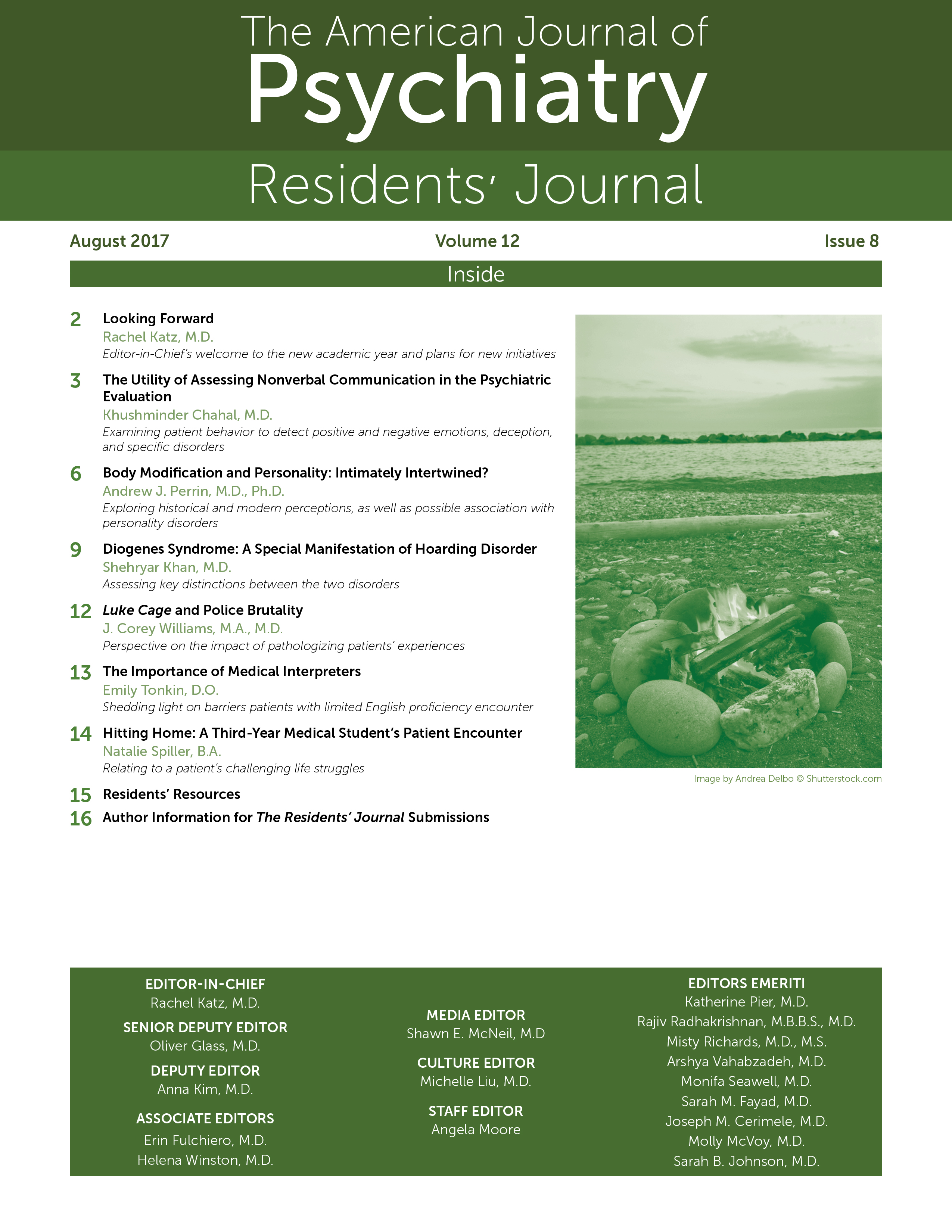The Importance of Medical Interpreters
While working on the psychiatry consultation-liaison service at a children’s hospital, I was asked to see a 12-year-old girl with lymphoma, multiple medical comorbidities, and limited English proficiency. The primary hematology-oncology team was concerned about oppositional and aggressive behaviors interfering with necessary medical care. Upon reviewing the case and doing a behavioral analysis on several major incidents in which the patient became aggressive or otherwise out of control, it was discovered that often staff was not using medical interpreter services. For example, a phlebotomist was witnessed entering the patient’s room and attempting to draw blood without speaking a word to the patient. After implementing a behavioral plan and increasing the use of medical interpreters, the patient’s behaviors improved.
Executive order 13166 was enacted in April 2000 to improve access to services for people with limited English proficiency in accordance with Title VI of the Civil Rights Act, which prohibits discrimination on the basis of national origin. As such, health care agencies must provide interpreter services to limited English proficiency patients. Data show that professional medical interpreters are underutilized in the health care setting, and multiple barriers to appropriate use have been identified, including limited time and limited access to interpreters (1). Additionally, alternatives to on-site interpreters, including telephone and video interpreters, have demonstrated some deficiencies (e.g., lack of non-verbal communication, less attention to cultural differences) (1).
As demonstrated by the opening anecdote, communication barriers can lead to a variety of problems, including aggression, hindrance of care, lack of informed consent, and avoidance of the health care system, among other negative outcomes. Conversely, it has been shown that use of an interpreter increases patient satisfaction, decreases adverse outcomes, and improves adherence and positive outcomes (2). Patients with limited English proficiency have expressed preference for professional interpreters over their bilingual family members and friends (3). In addition to providing accurate and informed language interpretation, interpreters often serve as cultural liaisons between patients and medical staff (2). Nevertheless, there are limitations to interpreter services, including variability in skill level, as there is no standardized certification for medical interpreters (4). Further limitations include delays in assessment (e.g., pain level) while waiting for an interpreter (1).
Despite these limitations, it is of the utmost importance to utilize medical interpreters in order to provide the same quality of care to all patients regardless of their preferred language. Medical providers have a professional and ethical obligation to treat all patients according to a standard of care determined by their field. This obligation cannot be fulfilled with regard to limited English proficiency individuals without the use of medical interpreters. Future efforts to improve interpreter services could focus on implementation of a standardized certification process and recruitment to increase the number of available in-person interpreters in the health care system.
1. : Not just “getting by”: factors influencing providers’ choice of interpreters. J Gen Intern Med 2015; 30(1):75–82 Crossref, Google Scholar
2. : Appropriate use of medical interpreters. Am Fam Physician 2014; 90(7):476–480 Google Scholar
3. : Linguistic and cultural barriers to care. J Gen Intern Med 2003; 18(1):44–52 Crossref, Google Scholar
4. : Medical interpreters: improvements to address access, equity, and quality of care for limited-English-proficient patients. Acad Med 2014; 89(10):1324–1327 Crossref, Google Scholar



